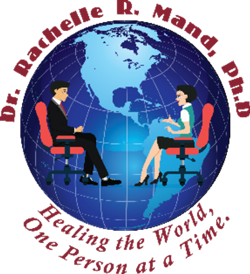Methods of Treatment
Psychotherapy
Psychotherapy is a process of understanding strengths, weaknesses, emotions, unconscious motivations and reactions to everyday events. The process of therapy increases understanding of the self in order to make better decisions about relationships, children, careers, money, sex, etc..
Psychotherapy sessions for adults are generally scheduled weekly. Problems are identified, goals are set, and then the bulk of the work will focus on achieving the goals. Psychotherapy is terminated when the goals are attained. My work focuses on the whole person with great respect for the innate wisdom of each individual.

Psychotherapy for children requires a comfortable play area with appropriate toys and games through which children may explore their world. Children shape our collective future. It makes the most sense to nurture them, guide them, and prepare them for the challenges they will face when they grow up. We (adults) are all role models for children, whether we are aware of it and/or want it. How we live around our children becomes a model for them to follow.
I work with parents in these and other areas. In many ways today’s children are more stressed than the previous generation. Divorces, reduced time with parents, high expectations from parents, early exposure to sex and violence, and now the fear of being hurt or abducted, or having a parent be hurt through terrorism, have all increased the stress that affect children’s behavior negatively. Therapy allows children to live out their fears and concerns through play. Healing occurs when the child feels safe to express himself/herself, is understood and validated by the therapist, and is given tools to better cope with his/her world.
Psychotherapy with adolescents is quite a unique process. Adolescence is the time to act out the opposing forces within: separation vs. attachment, dependence vs. independence, and adult identity vs. child identity. These powerful forces throw the teenager like a ball from one side of the psyche to the other; hence, all the acting out that you see in your teens.
Therapy helps make sense of it all and redirects the energy toward a more positive direction. Teens naturally attempt to create distance between themselves and their parents through various ways such as dressing differently, acting differently, and generally adhering to their own group culture.
Sometimes they go too far and create too much pain for themselves and their families. That is when therapy is beneficial. Adolescents in therapy benefit most by the psychological education about what is going on with them which is provided by the therapist. They need to feel understood and be assisted in their search for identity and independence.
Hypnotherapy
Hypnotherapy combines psychotherapy with hypnosis to facilitate understanding and awareness of the subconscious processes of the self. The hypnotic state increases the suggestibility of the patient to new and beneficial ideas. It is important to note that hypnosis by itself (without psychotherapy) may not have long lasting effect on the problem being addressed.
Art Therapy
Art is a form of projective tool whereby the patient projects onto the paper his/her conflicts and personal issues by the specifics of how he/she draws. Analysis of the “art” helps bring into the consciousness hidden aspects of the self. Art therapy is utilized especially with children because they enjoy that medium of expression. The paper, the easel, or the board is transformed into the world of the child and every detail that is drawn speaks of some aspect of the psyche of the child.
Play Therapy
This method is particularly helpful with children. Children live out their conflicts, fears, desires, etc. through playing. Toys and/or games are used to facilitate that process. Play therapy is another projective tool used to get closer to the unconscious motivations and conflicts. Toys for the play therapy area are selected based on the basic principles of play therapy in order to elicit various expressions of concern and other emotions in children.

Dream Analysis
We dream every night. Dreams reflect current conflicts and are generally in a symbolic language. Drams are also projective in nature. By analyzing the content, the patient can identify conflicts and personal issues. Dreams that come back time after time have a very
important message for the dreamer and they will persist, in one way or another, until the conflict is addressed. Patients soon learn to understand their various dreams and the messages they present. Learning to analyze your dreams is a valuable tool for life.
Pre-Marital Counseling
Love is never enough. Relationships, at best, are very complicated. Unspoken expectations of self and/or partner will generally result in discord. Pre-marital counseling focuses on assessing compatibility, communication, styles, conscious and unconscious expectations of the self, the partner, and the marriage. The pre-marital counseling is the best gift the couple can give one another, an investment in the future of the relationship.
Stepfamily Counseling
Stepfamilies are a special type of family where the structure and dynamics are entirely different from biological families. Stepfamily counseling deals with the myths and realities of such family style. The roles of the step mother as well as step father and a variety of other issues related to stepfamily living are explored. Children in stepfamilies are especially vulnerable to feelings of anxiety, rejection, and divided loyalties. The main focus of stepfamily counseling is to help strengthen the new blended family through various techniques.
Problem Gambling
Gambling is an addictive behavior that has the potential to cause a great deal of harm to the gambler as well as his/her family. The damage is psychological, familial, and financial. The impulsive behavior that characterizes gambling will be part of the focus of therapy. It is important to recognize the underlying causes of this behavior. Therapy facilitates this understanding as well as gives tools to help limit the gambling activities.
Victims of Crime
Effects of rape, robbery, child molestation, and other crimes are devastating. Victims of crime generally have feelings of loss, grief, lack of self worth, guilt, self blame, and anger. My approach to counseling the victims is designed to take the energy of anger and other emotions and redirect them to benefit the patient and perhaps the community a large.
Cross-Cultural Counseling
When it comes to culture, we are not all the same. Personal concerns/problems are perceived differently from culture to culture, Our culture shapes who we become and our value system. With dozens of cultures living in Southern California, it is important for the therapist to be educated in cross cultural issues. I have studied various cultures for the last 30 years. Along with that knowledge, I bring a certain Eastern perspective combined with Western values which allows me to give more to my patients. I speak Farsi and am familiar with other languages.
